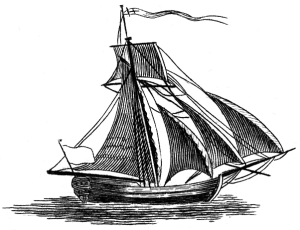 In 1780, a group of African men assembled in Newport, Rhode Island to organize and charter America’s first mutual aid society for Africans known as the Free African Union Society. The Society’s lofty mission included providing funds for indigent families, a burial society (Palls and Biers) to ensure proper burials, setting moral and ethical standards for public conduct within the larger community and most importantly, raising consciousness and funds within the African community to someday return to their native Africa. Meeting minutes of the Society that still exist today describe in detail the efforts to promote the betterment of fellow Africans, slave and free.
In 1780, a group of African men assembled in Newport, Rhode Island to organize and charter America’s first mutual aid society for Africans known as the Free African Union Society. The Society’s lofty mission included providing funds for indigent families, a burial society (Palls and Biers) to ensure proper burials, setting moral and ethical standards for public conduct within the larger community and most importantly, raising consciousness and funds within the African community to someday return to their native Africa. Meeting minutes of the Society that still exist today describe in detail the efforts to promote the betterment of fellow Africans, slave and free.
Over two hundred years ago this month, in a January 24, 1787 letter from Free African Union Society President Anthony Taylor to Abolitionist William Thornton, Taylor proclaims the interest of the Society for organizing a return and settlement back to Africa:
Sir,
Our Earnest desire of returning to Africa and settling there has induced us further to trouble you with these lines, in order to convey to your mind a more particular and full idea of our proposal……..We want to know by what right or tenor we shall possess said Lands, when we settle upon them, for we should think it not safe, and unwise for us to go and settle on Lands in Africa unless the right and fee of the Land is first firmly and in proper form, made over to us, and to our Heirs or Children.Your humble Servant, Anthony Taylor
In the Name of Union Society
Newport
Jan’y 24 A.D., 1787
It is remarkable to note that the American Colonization Society would not be formally charted until 1816 and the Colony of Liberia established six years later – both established as “a solution to the problem of free blacks,†but the African men of Newport nearly thirty years before had already initiated and organized a movement to return to Africa. Anthony Taylor would die in 1799, but on January 4th, 1826 setting sail on the brig Vine, two dozen persons of African heritage from Newport would arrive in Liberia on February 6th. Ironically, much of the party succumb to fever and died within a year. Triumphantly, they had not died in a land where men were held as slaves. They died free in their own land.
- Beginnings of the Back to Africa Movement - January 16, 2015
- TO BE SOLD: African Slave Advertisements in Colonial Newport - December 4, 2014
- In The Name of History - July 16, 2014



